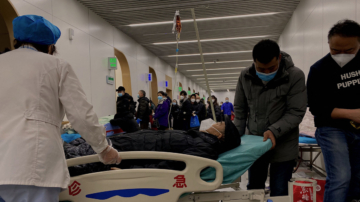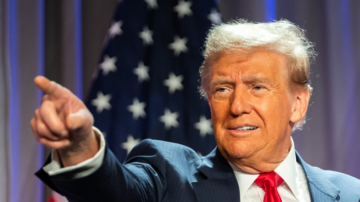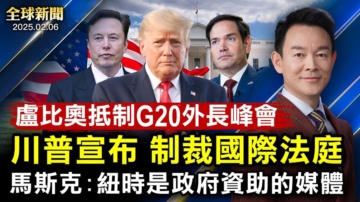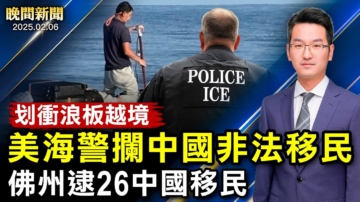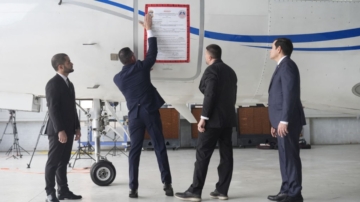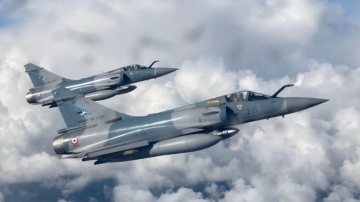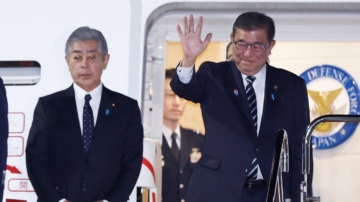【新唐人2014年05月24日讯】俄罗斯总统普京访华的最后一天,中共和俄罗斯签署了高达4000亿美元的天然气合同。未来30年,俄罗斯将每年向中国提供多达380亿立方米的天然气。分析指出,两国历经10年的谈判后,在这个时候达成协议,与最近俄罗斯受到欧美制裁以及两国的政治体制相似有关。
5月21号,中共和俄罗斯在上海签署了史上最大规模的能源合作单项购销合同。根据协议,俄罗斯将从2018年起,通过中、俄天然气管道东线向中国供气,输气量逐年增长,最终达到每年380亿立方米,累计30年。
俄国媒体披露,这份合同的总价达4000亿美元,对华供气价格超过每千立方米350美元。
据了解,从2004年开始,中共和俄罗斯就进行天然气谈判,但供气价格及定价机制一直是谈判的障碍。有消息人士透露,俄罗斯曾经希望,卖给中国的价格能和卖给日本的价格挂钩,达到最高约每千立方米500美金。然而受乌克兰局势影响,俄罗斯已经感受到来自欧洲的制裁压力,必须降低价格,扩大亚洲市场。
台湾政治大学国际关系研究中心主任严震生:“跟中国签了之后,至少它(俄罗斯)不会担心,万一不卖欧洲的话,至少还有一个中国,它少赚了钱,但是稳住了一个很重要的战略伙伴。毕竟去年习近平主席第一个出访就到俄罗斯。过去出访都是强调和平共处原则,尊重国家的主权跟领土的完整,但乌克兰这个事情在克里米亚,他(习近平)没有支持西方国家和联合国安理会协调,也算是给俄罗斯很大的一个帮忙。”
美国纽约城市大学政治学教授夏明:“现在俄国跟欧洲的关系出现了紧张局势,在这种情况下,它是看好中国。中国的能源需求,在过去30年呈直线型成长,中国在寻求能源安全上有一种强烈的焦虑感,中国当然希望,未来有一个比较稳定的能源的供给。能源,尤其是石油,供给国都是非常不稳的,最近中国的另外一个能源供给大国缅甸,有一种远离中国,更多的像西方靠拢的迹象。”
5月22号,德国《法兰克福汇报》一篇文章指出,同中共达成的供气协议有助于使俄罗斯摆脱对于欧洲的依赖,而中俄两国政体类似、领导人分享相同的价值观,是做成这一买卖的现实基础。
文章说,两位领导人都对美国在两国各自的利益圈内的活动不满,害怕美国所秉承的理念对各自国家的影响力。
夏明:“两个国家都面临了以美国为首的西方国家在东西两边对它们进行包括经济制裁、政治上的批评、围堵等等,这些国家必然想寻求一种合作。”
严震生:“我认为这是面对亚太的围堵,美国在亚太地区,也是一种对俄罗斯的一个新的围堵,这两个大陆的强国自然会靠在一起,而且俄罗斯有个问题,虽然它已经进入世界八大工业国,但是它总认为,它的民主是受到批判的。”
不过,德媒文章强调,尽管中俄有着共同的意识形态,双方最终仍然受各自利益的驱使。
据《美联社》报导,双方就供气价格问题的讨价还价,一直持续到普京访华结束前的最后几个小时。
据报导,尽管中共当局渴望进一步分散石油和天然气的供应来源,但它很清楚,中美双边贸易的规模是中俄贸易的3倍,中共仍希望与美国建立大国间的关系。
俄罗斯也不愿过深涉入中共战略。在中、日岛屿之争中,俄罗斯保持中立,也不愿介入中共与南海诸邻国之间的冲突。
美国“哥伦比亚大学”访问学者陈破空在博文中指出,俄国因入侵乌克兰、吞并克里米亚,遭到西方制裁,与日本的关系有所恶化,但若要说,俄国会与中共联手对抗日本,还差得太远。在东海联合军演,俄国顶多是给了中共一次“面子”。其实各有所图:中共主要演给日本看,俄国主要演给美国看。
采访/陈汉 编辑/陈洁 后制/萧宇
China and Russia Energy Deal Against the United States
On Putin's last day visiting China, a $400 billion natural gas
contract was signed that binds 38 billion cubic meters of gas
annually from Russia to China for the next 30 years.
Analysts believe this decade long negotiation between China
and Russia on energy finally went through because of the
EU and US sanctions against Russia and the similar political
systems of the two countries.
On May 21, China and Russia signed a landmark $400 billion
natural gas deal in Shanghai.
Starting from 2018, Russia will supply China up to 38 billion
cubic meters of gas annually for 30 years.
Russian media reported the contract of $400 billion will
supply China natural gas at prices exceeding $350 per
thousand cubic meters.
China and Russia have engaged in the gas price negotiation
since 2004.
Insiders revealed that Russia was hoping to sell China the gas
at a price comparable to the price to Japan, i.e., $500 per
thousand cubic meters.
However, the EU sanctions against the Ukraine issue has forced
Russia to cut the price to expand its market in Asia.
Yan Zhensheng, Research Fellow, Institute of International
Relations, Taiwan Chengchi University: "The contract assures
Russia that even though the money is less, it secures a
major strategic partner.
After all, Xi Jinping's first overseas visit was to Russia.
Even though stressing the principles of peaceful coexistence,
respect for sovereignty with the territorial integrity of the
country, Xi's silence on the Crimea issue from the Western
countries and the UN Security Council, can be considered a
great help to Russia."
Professor Xia Ming, Political Science, The City University of
New York: "Russia's tension with EU relies on China now.
The linear growth of energy demand in China for the past 30 years
has brought intense anxiety to the Chinese.
A secure energy supply has been China's hope.
The suppliers, especially in oil, have been very unstable to China.
Take the main energy supplier, Myanmar, as an example,
has been keeping a distance from China, and more likely
moving towards the West."
On May 22, an article in the German Frankfurter Allgemeine
Zeitung indicated that the gas supply agreement helped Russia
to shrug off its dependence on the EU.
The similarity in governments and leadership values are the
foundation for the success of this trading.
The article said that both leaders are offended by U.S.
activities in their circles of interests, and threatened by
U.S. ideology and influence.
Xia Ming: "Both countries are faced with the containment,
both economic sanction and political criticism, by the US-led
countries from the East and the West.
Therefore, they seek each other's help."
Yan Zhensheng: "I believe this containment in Asia is new to
Russia too.
These two major powers of the two continents will naturally
come together.
Russia is also faced with another issue. That is, even though
listed in the world's eight industrialized nations, Russia seems
to always be subject to criticism of its democracy."
However, the German media article emphasized that although
China and Russia have a common ideology, the two are still
ultimately driven by their own interests.
Associated Press has reported that gas prices have remained
the issue of bargain until the few hours before the end of
Putin's visit.
It is reported that although Communist China desires to
further diversify sources of supply of oil and natural gas,
clearly the Sino-US trade scale is three times the Sino-Russian
trade.
The Chinese Communist Party still hopes to establish relations
with the United States.
Russia is also reluctant to get deeply involved in the CCP's
strategy.
Russia has remained neutral in the islands dispute between
China and Japan, and the conflict between China and
neighboring countries in the South China Sea.
Columbia University visiting scholar Chen Pokong stated in
his blog that Russia's invasion of Ukraine and the annexation
of the Crimea have met sanctions from the West, as well as
deteriorated relations with Japan.
However, it is far fetched to say that Russia will unitewith China
against Japan.
The joint military exercises in the East China Sea are simply
a facade for the CCP.
In fact, both countries put on the show with their own
propaganda: The CCP is to show to Japan,
while Russia is to show to the United States.
Interview/Chen Han Edit/Chen Jie Post-Production/Xiao Yu
5月21号,中共和俄罗斯在上海签署了史上最大规模的能源合作单项购销合同。根据协议,俄罗斯将从2018年起,通过中、俄天然气管道东线向中国供气,输气量逐年增长,最终达到每年380亿立方米,累计30年。
俄国媒体披露,这份合同的总价达4000亿美元,对华供气价格超过每千立方米350美元。
据了解,从2004年开始,中共和俄罗斯就进行天然气谈判,但供气价格及定价机制一直是谈判的障碍。有消息人士透露,俄罗斯曾经希望,卖给中国的价格能和卖给日本的价格挂钩,达到最高约每千立方米500美金。然而受乌克兰局势影响,俄罗斯已经感受到来自欧洲的制裁压力,必须降低价格,扩大亚洲市场。
台湾政治大学国际关系研究中心主任严震生:“跟中国签了之后,至少它(俄罗斯)不会担心,万一不卖欧洲的话,至少还有一个中国,它少赚了钱,但是稳住了一个很重要的战略伙伴。毕竟去年习近平主席第一个出访就到俄罗斯。过去出访都是强调和平共处原则,尊重国家的主权跟领土的完整,但乌克兰这个事情在克里米亚,他(习近平)没有支持西方国家和联合国安理会协调,也算是给俄罗斯很大的一个帮忙。”
美国纽约城市大学政治学教授夏明:“现在俄国跟欧洲的关系出现了紧张局势,在这种情况下,它是看好中国。中国的能源需求,在过去30年呈直线型成长,中国在寻求能源安全上有一种强烈的焦虑感,中国当然希望,未来有一个比较稳定的能源的供给。能源,尤其是石油,供给国都是非常不稳的,最近中国的另外一个能源供给大国缅甸,有一种远离中国,更多的像西方靠拢的迹象。”
5月22号,德国《法兰克福汇报》一篇文章指出,同中共达成的供气协议有助于使俄罗斯摆脱对于欧洲的依赖,而中俄两国政体类似、领导人分享相同的价值观,是做成这一买卖的现实基础。
文章说,两位领导人都对美国在两国各自的利益圈内的活动不满,害怕美国所秉承的理念对各自国家的影响力。
夏明:“两个国家都面临了以美国为首的西方国家在东西两边对它们进行包括经济制裁、政治上的批评、围堵等等,这些国家必然想寻求一种合作。”
严震生:“我认为这是面对亚太的围堵,美国在亚太地区,也是一种对俄罗斯的一个新的围堵,这两个大陆的强国自然会靠在一起,而且俄罗斯有个问题,虽然它已经进入世界八大工业国,但是它总认为,它的民主是受到批判的。”
不过,德媒文章强调,尽管中俄有着共同的意识形态,双方最终仍然受各自利益的驱使。
据《美联社》报导,双方就供气价格问题的讨价还价,一直持续到普京访华结束前的最后几个小时。
据报导,尽管中共当局渴望进一步分散石油和天然气的供应来源,但它很清楚,中美双边贸易的规模是中俄贸易的3倍,中共仍希望与美国建立大国间的关系。
俄罗斯也不愿过深涉入中共战略。在中、日岛屿之争中,俄罗斯保持中立,也不愿介入中共与南海诸邻国之间的冲突。
美国“哥伦比亚大学”访问学者陈破空在博文中指出,俄国因入侵乌克兰、吞并克里米亚,遭到西方制裁,与日本的关系有所恶化,但若要说,俄国会与中共联手对抗日本,还差得太远。在东海联合军演,俄国顶多是给了中共一次“面子”。其实各有所图:中共主要演给日本看,俄国主要演给美国看。
采访/陈汉 编辑/陈洁 后制/萧宇
China and Russia Energy Deal Against the United States
On Putin's last day visiting China, a $400 billion natural gas
contract was signed that binds 38 billion cubic meters of gas
annually from Russia to China for the next 30 years.
Analysts believe this decade long negotiation between China
and Russia on energy finally went through because of the
EU and US sanctions against Russia and the similar political
systems of the two countries.
On May 21, China and Russia signed a landmark $400 billion
natural gas deal in Shanghai.
Starting from 2018, Russia will supply China up to 38 billion
cubic meters of gas annually for 30 years.
Russian media reported the contract of $400 billion will
supply China natural gas at prices exceeding $350 per
thousand cubic meters.
China and Russia have engaged in the gas price negotiation
since 2004.
Insiders revealed that Russia was hoping to sell China the gas
at a price comparable to the price to Japan, i.e., $500 per
thousand cubic meters.
However, the EU sanctions against the Ukraine issue has forced
Russia to cut the price to expand its market in Asia.
Yan Zhensheng, Research Fellow, Institute of International
Relations, Taiwan Chengchi University: "The contract assures
Russia that even though the money is less, it secures a
major strategic partner.
After all, Xi Jinping's first overseas visit was to Russia.
Even though stressing the principles of peaceful coexistence,
respect for sovereignty with the territorial integrity of the
country, Xi's silence on the Crimea issue from the Western
countries and the UN Security Council, can be considered a
great help to Russia."
Professor Xia Ming, Political Science, The City University of
New York: "Russia's tension with EU relies on China now.
The linear growth of energy demand in China for the past 30 years
has brought intense anxiety to the Chinese.
A secure energy supply has been China's hope.
The suppliers, especially in oil, have been very unstable to China.
Take the main energy supplier, Myanmar, as an example,
has been keeping a distance from China, and more likely
moving towards the West."
On May 22, an article in the German Frankfurter Allgemeine
Zeitung indicated that the gas supply agreement helped Russia
to shrug off its dependence on the EU.
The similarity in governments and leadership values are the
foundation for the success of this trading.
The article said that both leaders are offended by U.S.
activities in their circles of interests, and threatened by
U.S. ideology and influence.
Xia Ming: "Both countries are faced with the containment,
both economic sanction and political criticism, by the US-led
countries from the East and the West.
Therefore, they seek each other's help."
Yan Zhensheng: "I believe this containment in Asia is new to
Russia too.
These two major powers of the two continents will naturally
come together.
Russia is also faced with another issue. That is, even though
listed in the world's eight industrialized nations, Russia seems
to always be subject to criticism of its democracy."
However, the German media article emphasized that although
China and Russia have a common ideology, the two are still
ultimately driven by their own interests.
Associated Press has reported that gas prices have remained
the issue of bargain until the few hours before the end of
Putin's visit.
It is reported that although Communist China desires to
further diversify sources of supply of oil and natural gas,
clearly the Sino-US trade scale is three times the Sino-Russian
trade.
The Chinese Communist Party still hopes to establish relations
with the United States.
Russia is also reluctant to get deeply involved in the CCP's
strategy.
Russia has remained neutral in the islands dispute between
China and Japan, and the conflict between China and
neighboring countries in the South China Sea.
Columbia University visiting scholar Chen Pokong stated in
his blog that Russia's invasion of Ukraine and the annexation
of the Crimea have met sanctions from the West, as well as
deteriorated relations with Japan.
However, it is far fetched to say that Russia will unitewith China
against Japan.
The joint military exercises in the East China Sea are simply
a facade for the CCP.
In fact, both countries put on the show with their own
propaganda: The CCP is to show to Japan,
while Russia is to show to the United States.
Interview/Chen Han Edit/Chen Jie Post-Production/Xiao Yu

